Scottish independence referendum: Experts examine the claims
- Published
With the debate on Scotland's future entering "referendum year", the "yes" and "no" sides are intensifying their campaigns.
But what are their messages and how are they being viewed, not only by each other, but by experts, commentators and academics?
Throughout the coming months, the BBC news website will be picking out statements from both sides of the debate and asking a panel of experts to analyse the claims.
Here, we look at some of the key messages in the UK government's series of papers arguing for the Union.
Currency
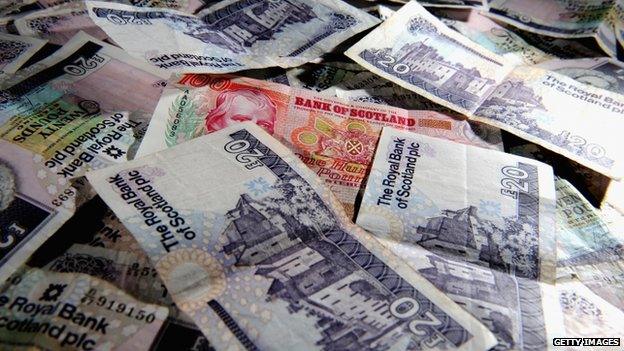
UK government paper on Currency and Monetary Policy, external: "Scotland and the rest of the UK are economically well placed in the current UK arrangements. Independence would change this assessment, even if an independent Scotland were to remain part of a sterling currency zone. Fiscal independence would make the monetary policy of the Bank of England less well suited to Scottish economic conditions."
PRO-UNION: Better Together leader and former UK chancellor Alistair Darling, says: "A currency union can only work if you have increased economic and political union - the very thing that nationalism is dead against."
PRO-INDEPENDENCE: John Swinney, Scottish finance secretary, says: "The benefits of a currency union are clear for both sides in terms of issues like promoting investment, eliminating transaction costs, reducing borrowing costs and facilitating the movement of labour and capital, and we welcome the governor's recognition of these benefits."
EXPERT - Angus Armstrong, National Institute of Economic and Social Research, external, says: "If Scotland becomes independent then the economies of Scotland and the rest of the UK are likely to diverge: for one thing, Scotland would become a large oil exporting nation and the rest of the UK would continue as an oil importer.
"In a formal currency union the Bank of England would continue to deliver a single overall monetary policy.
"Given that the rest of the UK would be ten times the size of Scotland, under any reasonable voting arrangement it is fairly clear to see in whose interests policy would be set. If an independent Scotland had its own currency there would be scope for setting its own policy."

Business

UK government paper on Business and Microeconomic Framework, external: "Splitting the UK market, by introducing a border of whatever form, will introduce a barrier to the free flow of goods, capital and labour to the detriment of firms, workers and consumers in both states and risks making it more challenging to attract overseas investors."
PRO-UNION: UK Business Secretary Vince Cable, says: "Breaking up Scotland's most lucrative market would destabilise enterprise and potentially put growth and jobs at risk. My message to the Scottish business community is that we're stronger and more secure together."
PRO-INDEPENDENCE - Fergus Ewing, Scottish Enterprise Minister, says: "There is so much scaremongering going on that people are shutting off. We want businesses to succeed - we want regulation that is appropriate and not cumbersome."
EXPERT - David Gibbons-Wood, Robert Gordon University,, externalsays: "The UK is one of the most highly integrated economic unions in the world and the establishment of a border between Scotland and the rest of the UK could be criticised using basic economic theory.
"Splitting such an integrated market is generally perceived to be against the interest of consumers and against the economic consensus of the last 60 years. A set of border controls post yes is in neither sides interests, and no one is currently proposing a border in the sense of checkpoints.
"A border need not be physical, it could be based on differing regulations, differing income tax or more stringent labour laws. Any of these factors could create a differential between prices paid by someone in Newcastle relative to someone in Glasgow. Predicting the winners and losers is not easy, but change would occur as Scotland, and the rest of the UK, became less integrated. The first small signs of differing prices would come in the increase of postage costs from mail order companies or eBay traders based in England. Similarly, the existence of separate countries might make people view working north or south of the border as no longer viable. This may exacerbate skills shortages as labour markets become fragmented, but it depends upon the perceptions people have if there is a yes vote rather than any actual barriers.
"Border differences between an independent Scotland and the rest of the UK, will be similar to those between Denmark and Germany if both nations remain part of the EU. A vote by the people of the rest of UK to leave the EU would make the debate about borders a central issue to Scotland's future economic wellbeing and connectivity. The danger for Scotland is that a democratically separate 'rest of the UK' outwith the EU might have very different policies on immigration and trade, resulting in significant border restrictions."

Banking
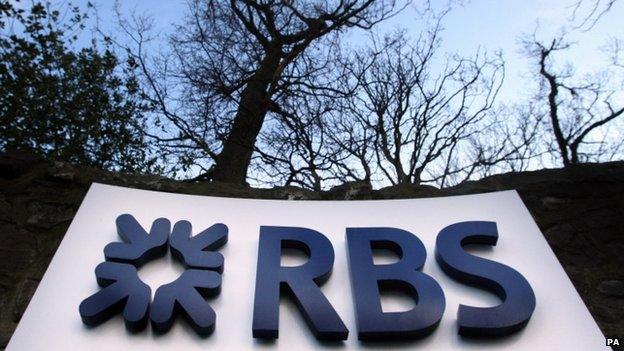
UK government paper on Financial Services and Banking, external: "As part of the UK, firms and individuals benefit from a world-leading financial services sector and a large, integrated domestic market for financial services, with clear and effective arrangements for protecting consumers. This position would be put at risk if Scotland were to become independent."
PRO-UNION: Former Scottish secretary Michael Moore, says: "If you put a border in the middle of that market, if you introduce different tax and regulatory regimes, it's wishful thinking to think it's not going to have any effect on the range of products you and I can buy to protect our families and our futures."
PRO-INDEPENDENCE: Deputy Scottish First Minister Nicola Sturgeon, says: "We see other small European countries that, right now, have mortgage rates lower than people get here in Scotland and it is also the case that increasingly we are looking at global action, European wide and and global-wide action, to make sure that we never experience again what the banking sector experienced some years ago."
EXPERT - Piotr Jaworski, Edinburgh Napier University, external, says: "If Scotland becomes independent with its own separate financial services sector, the clarity of arrangements for protecting consumers should not be very different than the one which governs the UK market now. Assuming that Scotland will be aiming at the membership of the European Union such arrangements must be in line with the EU system, which does not leave much space for differentiations among the Member States or Candidate Countries.
"However, effectiveness of such arrangements depends on the size of the market behind it, which in the case of an independent Scotland will be much smaller. This is especially true in the case of administrative costs of such a system: it seems that on average they must be higher. On the other hand, leaving such costs aside and assuming that Scotland will aim at small and medium size banking serving mainly the domestic economy it should not matter too much. All of this is also true in the long term while as in the short term uncertainty, which must be attributed to the process of creating such a system, would adversely affect both efficiency and clarity."

Science

UK government paper Science and Research, external: "The UK is ranked second only to the US in terms of world-class research, and the UK's share of the world's top 1% most cited publications is on an upward trend. If Scotland were to become independent, its continued success in these areas could not be guaranteed."
PRO-UNION: UK Universities Minister David Willetts, says: "British science across the UK is great. Edinburgh science is great, Glasgow science is great, all the other ones are as well. If the best you can say is you would strain every sinew to try to keep the same thing as you had pre-independence then the game hardly seems worth the effort - why not just stick with what you have got, which everyone says is working?"
PRO-INDEPENDENCE: Scottish Education Secretary Mike Russell, says: "We have more world-class universities per head of population than any other country and it is precisely because of that global excellence that in an independent Scotland will continue to attract valuable investment, research funding and students from around the globe."
EXPERT - Roger Cook, The Scotland Institute,, externalsays: "There is practically no evidence for this claim which really is little but an assertion. The bulk of research funding received by Scotland's universities is allocated by a fully devolved process as of now.
"To make sense of the government claim, first the ratio of non-Funding Council research income to total research income needs to be calculated. This means breaking the research funding down into the difference between that received from the relevant funding council and the amount of research funding received from all other sources (research councils, charities, industry etc).
"The existing research councils are constituted on a UK basis. They allocated £298m to Scotland and £2,977m to England for 2011/12. In other words, while the government paper is accurate to note that the relative apportionment to Scotland (roughly 10%) is higher than Scotland's share of GDP it should be noted that Scottish universities are much less dependent on this source of income than their English equivalents.
"There is no evidence that the SFC is planning to reduce the core research grants to Scottish universities. In the case of independence, it is possible that the current UK wide Research Council system would cease, it is equally possible that a joint system could be created. Even if all the current funding was lost from the Scottish sector, total research income per member of staff would remain above that in the rUK
"There is no reason to believe that the charitable sector funding for research in Scotland would be affected by independence. The government paper makes a series of strange claims, such as loss of NHS funded research, which takes no account of the reality that most NHS funded research in Scotland comes from the Scottish NHS; loss of EU funding for research, or of the loss of international networks when many academics work outside their country of origin already.
"The only valid claim in the paper is the loss of access to Research Council grants (depending on the post-independence arrangements). As noted this funding stream is less important for Scottish universities."

Security
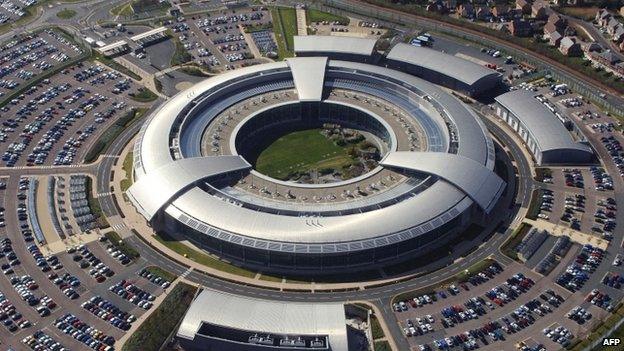
UK government paper on Security, external: "Police Scotland would lose automatic access to the capabilities and resources of MI5, SIS and GCHQ and the UK's wider intelligence analysis capabilities. An independent Scottish state would have to build up its own infrastructure because new capabilities would be required."
PRO-UNION: UK Home Secretary Theresa May, says: "I don't think it is possible to guarantee that the threat would diminish with a separate Scotland, but what would change would be the scale of capability that Scotland would have access to."
PRO-INDEPENDENCE: Scottish Justice Secretary Kenny MacAskill, says: "An independent Scotland will have first rate security arrangements to counter any threats we may face. And we will continue to work in very close collaboration with the rest of the UK and international partners on security and intelligence matters, which is in everyone's interests."
EXPERT - Bill Buchanan, Edinburgh Napier University, externalsays: "Scotland is a small nation, and, in an independent Scotland, it is likely to have a different threat profile than the UK generally. For us, the focus is likely to be in the protection of our key business sectors, such as oil and gas, the finance sector, education, and health and social care. It is most likely that our defences will focus on protecting citizen rights against threats, while trying to enable increased access to data, and providing citizens with more control over it. Through increased devolution, Scotland has made major strides towards this, in a way which the UK has tended to struggled with.
"No matter what happens, the nation is becoming increasingly dependent on its cyber infrastructure. This is highlighted by certain key internet routes from Scotland to the rest of the world. Any problems with these routes would have a major impact on both businesses and the public sector.
"Scotland mainly depends on its internet and wireless communication infrastructure on route that go through London. Any issues around power outages in London could cause significant problems in Scotland. No matter which way the vote goes, Scotland needs to understand its critical infrastructure and the routes for the provision of energy and internet connectivity.
"In conclusion, the ball has been rolling for a more developed information infrastructure in Scotland, and nothing should stop this. While the nation may lose out on the connections to the larger UK intelligence network, it could gain from a connection to a large international one. No matter which way it goes, every nation, every region, every city and every organisation needs to understand where its key risks are around its infrastructure, and try to mitigate against these.
"At present Scotland has an under-investment in its cyber defence, and no matter which way the country votes, there needs to be more funding around this by the Scottish government."

Defence
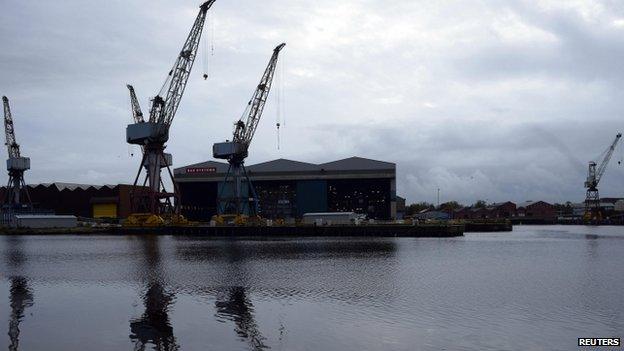
UK government paper on Defence, external: "Companies based in an independent Scottish state would no longer be eligible for contracts that the UK chose to place or compete domestically for national security reasons; and where they could continue to compete they would be pitching for business in a competitive international market dominated by major economic powers. Other than procurement activity undertaken during the World Wars, the UK has not had a complex warship built outside the UK since the start of the 20th century at least."
PRO-UNION: UK Defence Secretary Philip Hammond, says: "The debate on the future of defence in Scotland is too important to be ignored, or brushed under the carpet, or fobbed off with half-baked sound bite policies which are financially and strategically incoherent."
PRO-INDEPENDENCE: Scottish government minister Keith Brown, says: "We would increase the number of defence jobs in Scotland, from around 11,000 to 15,000 and we believe that's the optimum number for the kind of things which we want to see a defence force in Scotland carry out - not illegal wars."
EXPERT - Phillips O'Brien, University of Glasgow, external, says: "The real problem that an independent Scotland would have in securing warship building from the rest of the UK (rUK) is political. States overwhelmingly choose to build their warships in their own shipyards, even if the cost is considerably higher than that offered by outside companies. For many years the UK has shown a willingness to pay this domestic premium, only opting for outside construction - most famously in the case of the next generation of military fuel tankers now being built in Korea - when there was no British yard capable of doing the work.
"That being said, the recent decision to concentrate the shipbuilding of the new Type 26 frigates on the Clyde, while reducing the capabilities of Portsmouth, means that it is almost certain that Scotland would be able to build the new class of vessel at lower cost than anywhere in the rUK. It is therefore not inconceivable for an independent Scotland to secure some work building these vessels. However, to get the work, one assumes that an independent Scotland would have to place orders for the purchase of military equipment from the rUK for approximately the same amount. In other words, it is very difficult to imagine that the rUK, after Scotland decided to leave the Union, would then turn around and spend much money employing Scots, unless it received money for orders in return.
"The final point that needs to be made about independence and shipbuilding is that if the union breaks up, the future of all future shipbuilding plans will come under review. Right now the UK is still trying to maintain enough military force to justify its position as a global power with a seat on the UN Security Council. A diminished rUK, however, could opt for a much reduced global role with reduced capability. In that case, there simply might not be many ships built anywhere."

European Union
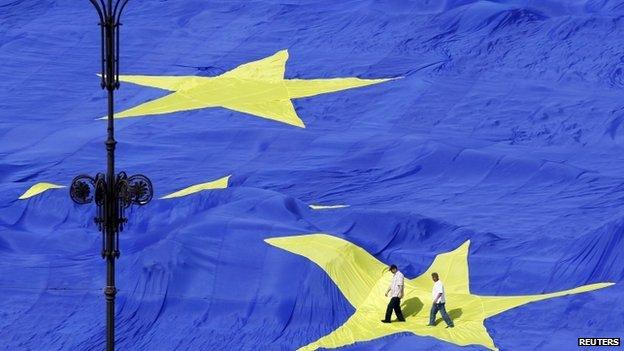
UK government paper on EU and International Issues, external: "Scotland will receive €228 million more in structural funds than if it were an independent state. On the Common Agricultural Policy, an independent Scottish state's receipts are uncertain and would depend on the terms of accession, which would have to be agreed by all 28 member states."
PRO-UNION: Chief Secretary to the Treasury Danny Alexander, says: "The bottom line is this - Scotland outside of the UK would have to negotiate its own way back into the European Union, and as such its terms of membership would be entirely different to those we currently enjoy."
PRO-INDEPENDENCE: Deputy Scottish First Minister Nicola Sturgeon, says: "Nothing we propose changes the material conditions of any other member state - while they are so certain of complete success in their own ill-advised re-negotiations with the EU over proposals that will fundamentally change the provisions of treaties on which the entire EU, and its single market, rests."
Expert - Kirsteen Shields, University of Dundee, external, says: "Expense to other member states in increasing CAP receipts to an independent Scotland may in time be offset by reduction in CAP receipts to the UK. Member States would likely be motivated to ensure that it would remain viable for Scotland to remain in the EU.
"The budget ceiling at issue relates to a six-year period only. Of greater significance is what lies beyond 2020. In that respect it is important to consider the budgetary implications for Scotland were it to remain in a UK which is severed from the EU or whether, in the long-term, it may be more advantageous for Scotland to be in the EU than in the UK."

Fiscal policy
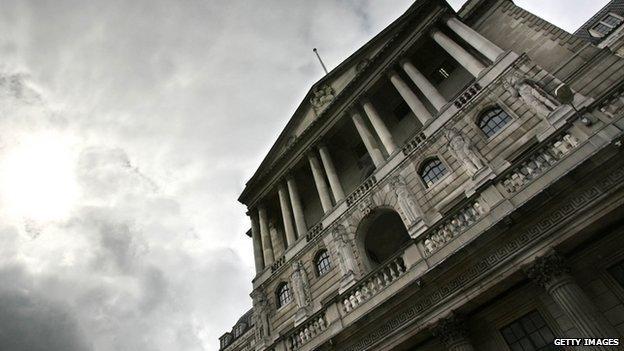
UK government paper on Macroeconomic and Fiscal Performance, external: "A separate Scottish state would have to establish its own macroeconomic and institutional framework. Institutional and policy divergence between Scotland and the continuing UK would be likely to lead to a weakening of economic integration. And over the longer-term, some business networks might end as a result of economic, historical and cultural ties being weakened.
PRO-UNION: UK chancellor George Osborne, says:"Let's lay to rest some myths once and for all - independent countries of a similar size do not outperform Scotland."
PRO-INDEPENDENCE: Deputy Scottish First Minister Nicola Sturgeon says: "If you were sitting in Norway listening to George Osborne you would laugh at him, because they are a country of similar size to Scotland that is sitting right now on a £470bn oil fund for the future."
EXPERT - David Ulph, from the Social Institute for Research in Economics, external, says: "While it is true that a Scottish state would have to develop its own macroeconomic and institutional framework, what this statement seems to ignore is that Scotland already has a very different institutional framework from rest of UK - different legal system, education system, health system etc.
"A separate Scottish state might choose to mimic some of the institutional framework in the rest of the UK (rUK) - eg, competition framework - or pursue a very different competition policy. There is nothing inevitable about a widening divergence, this is to some extent a matter of policy choice.
"Almost by definition it is certainly true that the creation of a separate Scottish state would bring to an end the devolution of powers from UK to Scotland. But that doesn't mean that all devolution would end. There are interesting questions about devolution of powers within the rest of the UK, and devolution of tax and spending powers within Scotland to local authorities.
"While true that sharing of fiscal risks would be reduced there is nothing inevitable about not being able to coordinate policies and share costs. Note: Airbus provides example of coordination and sharing of costs across national boundaries.
"Finally, for reasons set out above, I don't think there is a lot one can learn from the literature of trade, labour and capital flows. Given the existing institutional divergences, are Scotland and the rest of the UK best thought of as two regions of a single country or as two otherwise similar regions in different countries?
"But one important point is that it is essential to distinguish trade flows from capital and labour flows. It makes a great deal of difference whether some goods or services are produced in rest of UK using capital and labour in rest of UK and then exported into Scotland, or whether there are flows of labour and capital into Scotland to facilitate local production to serve the domestic market. Institutional and other barriers may limit trade flows but encourage flows of labour and capital."